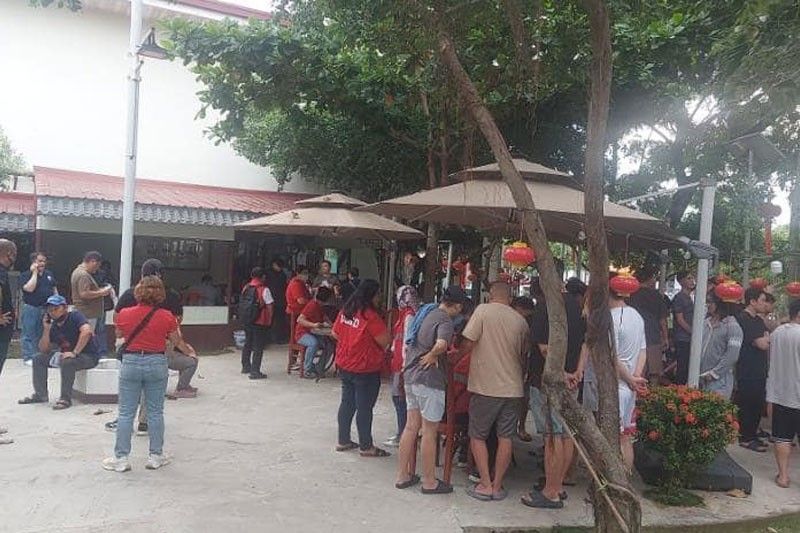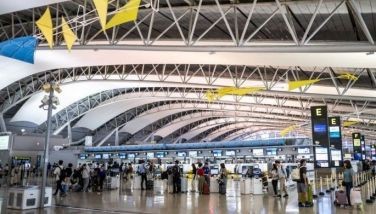Philippine deports 70 Chinese nabbed in POGO raids

MANILA, Philippines — Seventy Chinese nationals nabbed during a recent raid on a Philippine offshore gaming operator (POGO) hub in Pasay City were deported to China yesterday, according to the Presidential Anti-Organized Crime Commission (PAOCC).
The group left in the morning on Philippine Airlines flight PR 336 bound for Shanghai from the Ninoy Aquino International Airport Terminal 1, PAOCC chief Gilbert Cruz said.
The deportation was done in coordination with the Bureau of Immigration.
Cruz said a total of 75 Chinese were arrested during the Pasay City raid but five with pending cases in local courts have to remain for the time being.
Immigration officials processed the documents of the deportees before they were allowed to enter the NAIA Terminal 1 for their 10:20 a.m. flight to Shanghai.
According to PAOCC, many top executives of POGOs were able to elude authorities and managed to leave the Philippines.
“We have many ports, legal and illegal, throughout the Philippines. We cannot account for some of the private ports built by people who have resources,” Cruz said.
He also said many POGOs are still operating despite President Marcos’ order for their total ban.
“Last Aug. 31, we raided a POGO (hub) in Lapu-Lapu City upon the Indonesian embassy’s request regarding eight Indonesians reportedly being held against their will,” Cruz said.
‘RICO law needed’
At the House of Representatives, Surigao del Norte Rep. Robert Ace Barbers said the Philippines should have a law similar to the Racketeering Influenced Corrupt Organizations (RICO) of the US to stop the operations of POGOs and similar enterprises.
Barbers, head of the House quad committee, said the RICO law was used “extensively and successfully to prosecute thousands of individuals and organizations in the US.”
The quad committee comprises four House committees investigating illegal activities by POGOs and their connections to other criminal operations like human trafficking, money laundering and the illegal drug trade.
“There is a need to craft an all-encompassing law against all known or would be created criminal enterprises in the country, just like the US RICO law,” he noted in a statement.
He said the RICO law “makes it unlawful to acquire, operate or receive income from an enterprise through a pattern of racketeering activity.”
“The underlying tenet of RICO is to prove and prohibit a pattern of crimes conducted through an ‘enterprise,’ which the statute defines as any individual, partnership, corporation, association or other legal entity, and any union or group of individuals associated in fact although not a legal entity,” he said.
According to Barbers, the committee continues to unravel “various racketeering schemes” involving POGO operations in the country as it continues with its investigation.
“What was worse was the alleged diversion of some POGOs dirty funds to finance and reward law enforcers involved in extrajudicial killings under the previous administration’s campaign against illegal drugs,” he said.
The “wider perspective” lawmakers derived from their investigation has “pointed us to a direction that tells us that there is still much more to uncover in the mystery behind the illegal POGOS in Bamban, Tarlac and Porac, Pampanga – or even beyond.” — Sheila Crisostomo
- Latest
- Trending
































